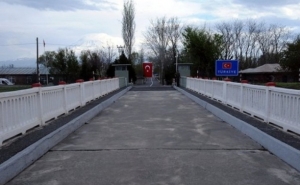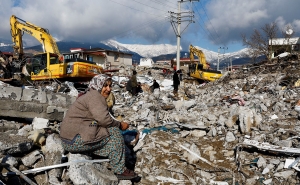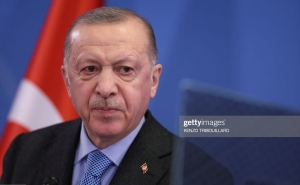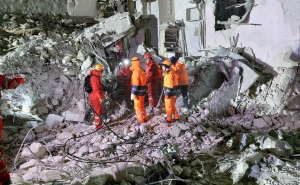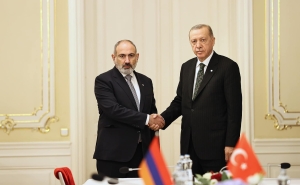 Erdogan's Primitive Maneuvers Justify Themselves
Erdogan's Primitive Maneuvers Justify Themselves
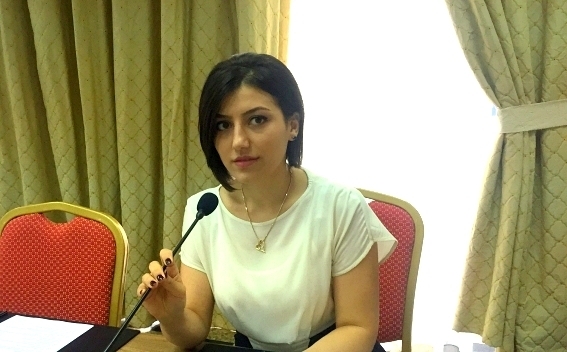
- How do you assess the results of the parliamentary elections in Turkey? Were they unexpected?
- On November 1, the Turkish snap parliamentary elections took place in the background of political instability, economic recession, and terrorist violence in the country. Compared to the last parliamentary elections on June 7, Justice and Development Party managed to improve its results over 10% garnering more than 50 percent. Meanwhile, all public opinion polls showed that the AKP will have fewer seats in the parliament.
317 seats that AKP gained, however, are enough for the next 4 years to form a single-party government, but it must not be forgotten that the Turkish leader Recep Tayyip Erdogan's long-term goal is to change the constitution and introduce a presidential system of government. That's why the party needed those 367 seats, although 330 only were enough to put the issue to a referendum. This means that the new Constitution is not a closed issue, and Erdogan still has a chance to change it.
Given Erdogan's strategy, through which he was able to "neutralize" Turkey's military, which traditionally played an important role in the country, as well as had control over the judicial system, we can confidently say that Erdogan will not hesitate to take new steps towards the implementation of the constitutional changes.
The main opposition Republican People's Party managed to slightly improve its position by garnering 25.8 percent instead of the previous 25%. The pro-Kurdish People's Democracy Party, which in June became the first Kurdish party in Turkey's parliament, has lost a considerable number of votes. The pro-Kurdish party again managed to overcome the barrier of 10 percent although garnering 11 percent instead of 13 percent in the June elections; the results which they explain by the "abnormal" period before the elections. According to a variety of information, numerous violations were registered during the elections, including the releases about widespread electoral fraud and falsification of results.
- What are the factors that contributed to the AKP's victory?
- If there is a winner in the face of AKP, there should also be a loser. This time it was the National Movement Party, whose votes fell from 16 percent to 12 percent. This reflects the fact that inflaming nationalist passions and getting extra dividends from it still works in Turkey. Erdogan's action which seemed too primitive at first glance was thus justified. Imitating a fight against IS and starting a war against the Kurdish nationalists, Erdogan managed to attract the masses. It seems that the Turkish nationalist roots are so deep inside that even after 100 years it is possible to activate them.
We should not forget about the stability factor. "Give me 400 MP, and I will ensure peaceful resolution of problems» ̦ - Erdogan announced before the elections. Over the last 5 months the regular terrorist attacks had their impact on people's consciousness. Finally, the AKP received more than 4 million votes indicating that stability is paramount over democracy and fundamental freedoms.
By the way, this time Turkey’s Western allies also need stability in the country. In order to stop the flow of refugees to Europe, EU postponed the publication of its annual report about Turkey's progress, which contains considerable criticism on human rights violations in Turkey. For the same reason, the European partners, after they turned a blind eye on the irregularities during the election campaign and on the very election day, rushed to give the elections a "democratic" qualification.
- What will be the consequences of AKP's victory?
- It is obvious that the AKP’s victory in Turkey will have its impact both on the internal situation and foreign policy. There are fears that this success will lead to further deepening of authoritarianism in the country. It is possible that pressure on opposition parties and media will flourish. In addition, given the fact that the success of the AKP's leader, is also the victory of Prime Minister Ahmed Davutoglu, who will possibly not wish to act in Erdogan's shadow from now on, it's possible that the split within the party could go even deeper.
Finally, Turkey's Kurdish problem can stand the risk of further escalation. The clashes in the predominantly Kurdish Diyarbakir yesterday evening, which resulted in the death of one person and injuries of more than 20, are a mere proof of what is said. According to unofficial sources, the Kurds make up 18 percent of Turkey's population (according to official figures, 10%), expanding their traditional deployment zone. These demographic changes with the present realities can become a serious challenge for the government, which faces numerous other problems, including economic transformation, Syrian crisis, fight against terrorism or an imitation of that fight, restoring the country's image on international and regional platforms and so on.
The results of the elections enable Erdogan and his Justice and Development Party to act until 2019. This is an opportunity to continue making the Turkish society to go closer to Islam and neo-Ottomanism, which Erdogan will use maximally.
Other materials on this subject
- 2 dead, 2 injured after fire at lodging section of Armenian Catholic Church in Istanbul He said the firefighter-rescue team arrived immediately. Armenian Catholic Archeparch of Istanbul Archbishop Lévon Zékiyan was also on the scene.
- Turkey is sending Cold War-era cluster bombs to Ukraine – FP The weapons are designed to destroy tanks by bursting into smaller submunitions, which can linger on the battlefield for years if they do not immediately explode. Each round scatters about 88 bomblets.
- Fire erupts in Turkey’s Black Sea port of Samsun following explosion The causes for the explosion that led to a fire are currently being analyzed.
- EU Urges Turkey to Stop Offering Russia Solutions to Circumvent Sanctions Speaking about the EU's engagement with Turkey, an important neighbor, EU partner and candidate country for EU membership, we stress the importance of ensuring that Turkey's foreign policy is aligned with...
- Any Change of Internationally Recognized Borders in Region is Unacceptable – Iranian President to Erdogan "The basis of our policy in the region is that the fates of the countries must be determined by themselves and that their national sovereignty and territorial integrity must be respected" Raisi told Erdogan...
-
 17:08
17:08The regular session of the Anti-corruption Policy Council takes place in Jermuk
-
 15:05
15:05The Prime Minister sends congratulatory messages to the supreme leader of Iran and the President of Iran
-
 11:11
11:11Armenia sends earthquake aid to Turkey
-
 10:43
10:43Commemoration of the Pontiff St. Sahak Partev
-
 09:16
09:16Some roads are closed and difficult to pass in Armenia
-
 19:55
19:55Phone conversation of the Foreign Minister of Armenia with the U.S. Assistant Secretary of State for European and Eurasian Affairs
-
 18:30
18:30Prime Minister Pashinyan and President Khachaturyan meet
-
 18:20
18:20Ararat Mirzoyan with Co-Chairman of the OSCE Minsk Group of France Brice Roquefeuil
-
 17:01
17:01Humans could land on Mars within 10 years, Musk predicts
-
 16:45
16:45France, US urge 'immediate' end to Nagorno Karabakh blockade
-
 16:01
16:01Blockaded Nagorno Karabakh launches fundraiser to support quake-hit Syria
-
 15:59
15:59Earthquake death toll in Turkey rises to 18,342
-
 15:43
15:43Ararat Mirzoyan Held a Telephone Conversation with Sergey Lavrov
-
 15:06
15:06French president rules out fighter jet supplies to Ukraine in near future
-
 14:47
14:475 Day Weather Forecast in Armenia
-
 14:44
14:44President Vahagn Khachaturyan wrote a note in the book of condolences opened in the Embassy of Syria in Armenia
-
 14:20
14:20Azerbaijan’s provocations impede establishment of peace and stability – Armenian FM tells Russian Co-Chair of OSCE MG
-
 12:57
12:57France representation to OSCE: Paris calls on Azerbaijan to restore freedom of movement through Lachin corridor
-
 11:40
11:40Command of Kosovo forces highly appreciated preparation of Armenian peacekeepers
-
 10:16
10:16The United States withdrew from sanctions against Syria for six months the provision of assistance after the earthquake
day
week
month
Humidity: %
Wind: km/h


